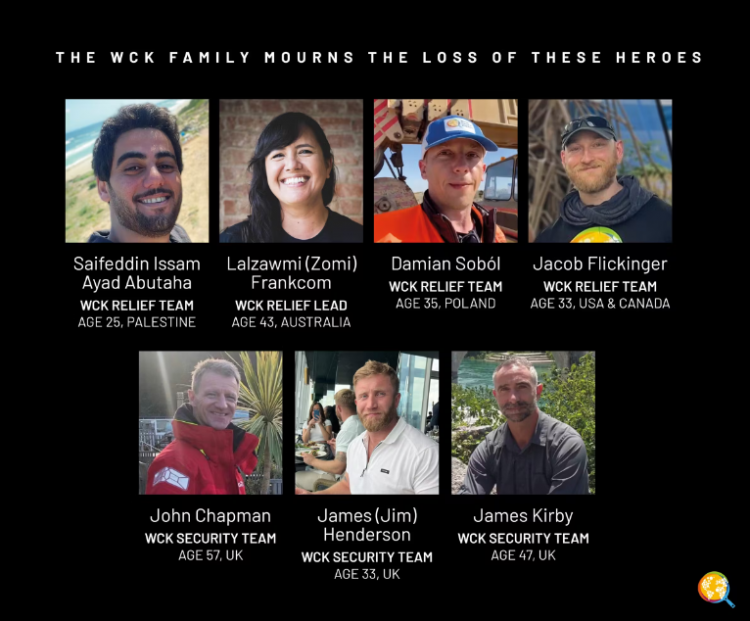The Israel Defense Forces (IDF) released the findings of an investigation into a missile strike that killed several World Central Kitchen aid workers in the Gaza Strip, admitting that the incident "should not have occurred" and was the result of a "serious failure due to a mistaken identification." The IDF announced that two officers, a brigade fire support commander and a brigade chief of staff, will be dismissed from their positions, while three others will be formally reprimanded for their roles in the deadly drone strikes.
The investigation, led by retired general Yoav Har-Even, found that the authorities who approved the strike were mistakenly convinced they were targeting Hamas operatives. "The strike on the aid vehicles is a grave mistake stemming from a serious failure due to a mistaken identification, errors in decision-making, and an attack contrary to the Standard Operating Procedures," the IDF stated.
The incident, which occurred on Monday, claimed the lives of seven aid workers, including a dual U.S.-Canadian citizen, three British citizens, a Polish citizen, an Australian, and a Palestinian, all of whom worked for World Central Kitchen, the international charity founded by celebrity chef José Andrés. The killings prompted international condemnation and demands for an explanation from Israel's closest allies, including the United States.
According to the IDF investigation, forces identified a gunman on one of the aid trucks and then found additional gunmen. After the vehicles delivered aid to a warehouse, Israeli military commanders mistakenly assumed the gunmen were Hamas terrorists and that they were riding in the vehicles. The IDF acknowledged that the forces did not identify the vehicles as belonging to the World Central Kitchen and carried out strikes on the three vehicles based on this mistaken identification.
The findings of the investigation revealed two major areas of wrongdoing. First, officers failed to read messages alerting troops that cars, not aid trucks, would carry workers from the charity away from the warehouse where aid was distributed, leading to the misidentification of the targeted vehicles. Second, a major who identified the strike target and a colonel who approved the strike were faulted for acting with insufficient information.
The swift investigation and the punishment of five senior officers were highly unusual, as investigations into suspected wrongdoing by soldiers and officers are often slow and rarely result in charges being filed. Human rights activists have long accused Israeli forces of operating in a climate of impunity, an allegation the military rejects.
World Central Kitchen CEO Erin Gore described the incident as "not only an attack against WCK," but an "attack on humanitarian organizations showing up in the most dire of situations where food is being used as a weapon of war," calling it "unforgivable." The food charity called the investigation and disciplinary actions "important steps forward" but noted that the probe itself found that the army didn't follow its own protocols, emphasizing the need for systemic change to prevent future military failures and grieving families.
The IDF expressed "deep sorrow for the loss" and sent condolences to the families and the World Central Kitchen organization. In addition to the dismissal of the two officers, a brigade commander and the commander of the 162nd Division will be formally reprimanded, while the commander of the Southern Command will be reprimanded "for his overall responsibility for the incident."
The killings have renewed skepticism over the Israeli military's decision-making and raised questions about the safety of aid workers in Gaza, where nearly a third of the population is on the brink of starvation due to the ongoing conflict between Israel and Hamas. More than 220 humanitarian workers have been killed in the conflict, according to the U.N., with aid groups and human rights organizations accusing Israeli forces of firing recklessly at civilians throughout the conflict.






